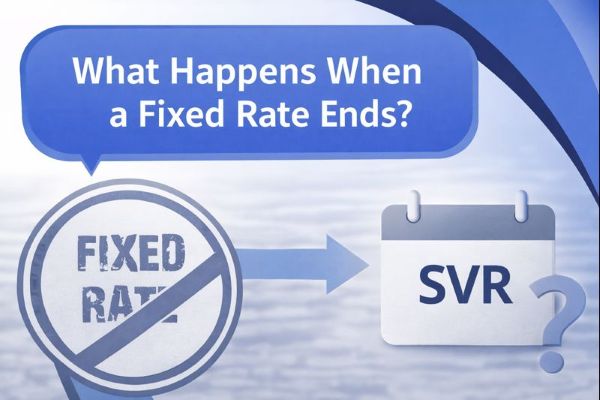When Should I Seek Mortgage Advice? | Buying or selling a property can feel overwhelming. Many people find the process stressful due to financial decisions, paperwork, and time pressures. Whether you are entering the property market for the first time or planning your next move, mortgage advice can help you make informed and confident decisions.
If you are struggling to secure a mortgage, unsure where to start, or short on time, speaking to a mortgage adviser can provide clarity. Professional mortgage advice helps you understand your options, manage affordability, and avoid costly mistakes.
A property purchase is a major financial commitment. Whether you are a first-time buyer, moving home, or refinancing an existing mortgage, the right advice can make a significant difference. Understanding when to seek mortgage advice is key to achieving the best outcome.
When Is the Right Time to Seek Mortgage Advice?

In the past, many borrowers relied on their high street bank for mortgage support. Today, more people choose independent mortgage advisers who can access a wider range of lenders and products.
With so many mortgage options available, some suitable and others not, knowing where to begin can be difficult. Mortgage advice helps guide you through the process and ensures your application is aligned with lender criteria.
Below are key situations where seeking mortgage advice is strongly recommended.
Preparing for Homeownership
If you are planning to buy a home in the near future, it is wise to seek mortgage advice early. A mortgage adviser can review your financial position, assess affordability, and identify steps to improve your chances of approval.
This may include guidance on managing debts, improving your credit profile, or saving for a deposit. Early advice also helps you understand how much you may be able to borrow and which Residential Mortgage options may be suitable.
If you’re a first-time buyer, navigating the mortgage market can be overwhelming. A mortgage adviser can simplify the process by explaining the various mortgage types, down payment requirements, and associated costs. They can help you understand the eligibility criteria for first-time buyer programs and assist you in securing the most suitable mortgage deal for your circumstances.
Complex Financial Situations
Mortgage advice is critical if your finances are not straightforward. This includes being self-employed, having multiple income sources, or earning variable income.
Many high street lenders apply strict criteria in these cases. A mortgage adviser can identify lenders that are more flexible in their income and documentation requirements. You may benefit from tailored solutions such as a Self-Employed Mortgage or guidance on Adverse Credit Mortgages if your credit history is less than perfect.
Saving Time and Comparing Options
Searching for mortgage deals can be time-consuming. A mortgage adviser can access a wide range of lenders and products on your behalf.

They will compare interest rates, fees, and terms before presenting suitable options. This allows you to make informed decisions and potentially save money over the life of your mortgage.
Mortgage Renewal or Remortgaging
When your existing mortgage deal is coming to an end, it is an ideal time to seek mortgage advice. An adviser can assess whether switching lenders or renegotiating terms is beneficial.
They can also review whether remortgaging could help reduce monthly payments or release equity. Learn more about your options through our Remortgaging guidance.
Changes in Financial Circumstances
Significant changes in your finances can affect your mortgage eligibility. This may include a change in employment, an increase in income, or the need to consolidate debts.
Mortgage advice can help you understand how these changes impact your borrowing options. An adviser can recommend suitable actions, such as refinancing or adjusting mortgage terms, to suit your new situation.

Understanding the Complexity of the Mortgage Market
The mortgage market can be challenging to navigate, particularly for borrowers with non-standard income. For example, self-certification mortgages were removed due to regulatory concerns, which limited options for self-employed borrowers.
While these products are no longer available, alternative solutions exist. Lenders now assess income using business accounts, trading history, and supporting documentation rather than self-declared figures.
Mortgage Options for Self-Employed Borrowers
Self-employed borrowers may need to provide additional documentation and undergo more detailed affordability checks. Lenders often focus on income stability and long-term sustainability.
A mortgage adviser experienced in complex cases can help identify suitable products and guide you through the application process. Working with a specialist adviser increases the likelihood of finding a mortgage that fits your circumstances.
Why Mortgage Advice Matters
Mortgage advice can help you save time, reduce stress, and avoid unsuitable products. It ensures your mortgage is affordable, compliant, and aligned with your long-term goals.
Mortgage advice is especially valuable when preparing for homeownership, buying your first property, managing complex finances, or reviewing an existing mortgage.
About Connect Mortgages and the Connect Group
Connect Mortgages is part of the Connect Group. Connect Experts and Connect for intermediaries are trading divisions of Connect IFA Ltd.
Mortgage professionals looking to grow their business can “Join Our Mortgage Network” through Connect for intermediaries.
If you are looking for regulated advice from an experienced professional, you can “Find Mortgage Advisers“ nationwide through Connect Experts.
Speak to a Mortgage Adviser
If you are unsure whether now is the right time to seek mortgage advice, a conversation with an adviser can help clarify your options before you apply.
Your home may be repossessed if you do not keep up repayments on your mortgage or any loan secured on it.
Thank you for reading our “Do I Need Life Cover for a Mortgage? | Connect Mortgages” publication. Stay “Connect“-ed for more updates soon!







